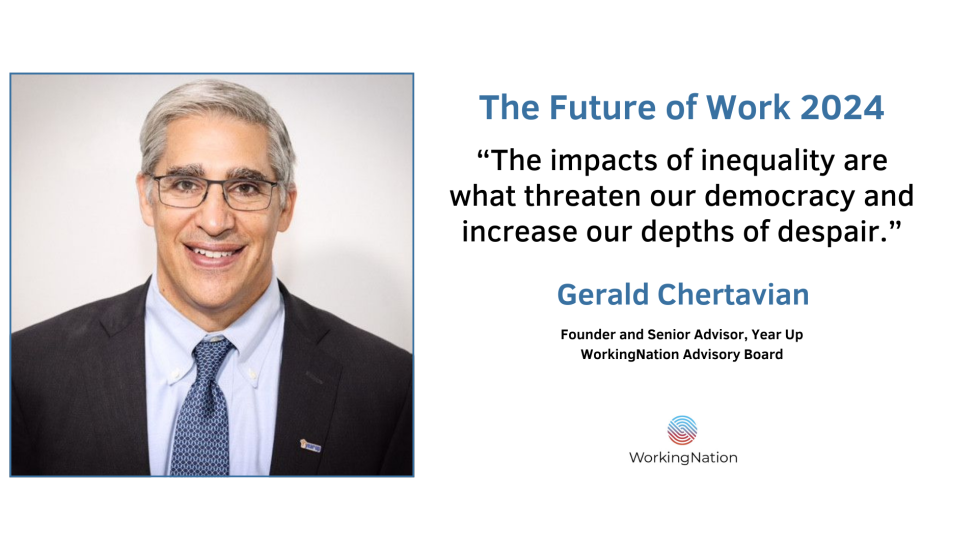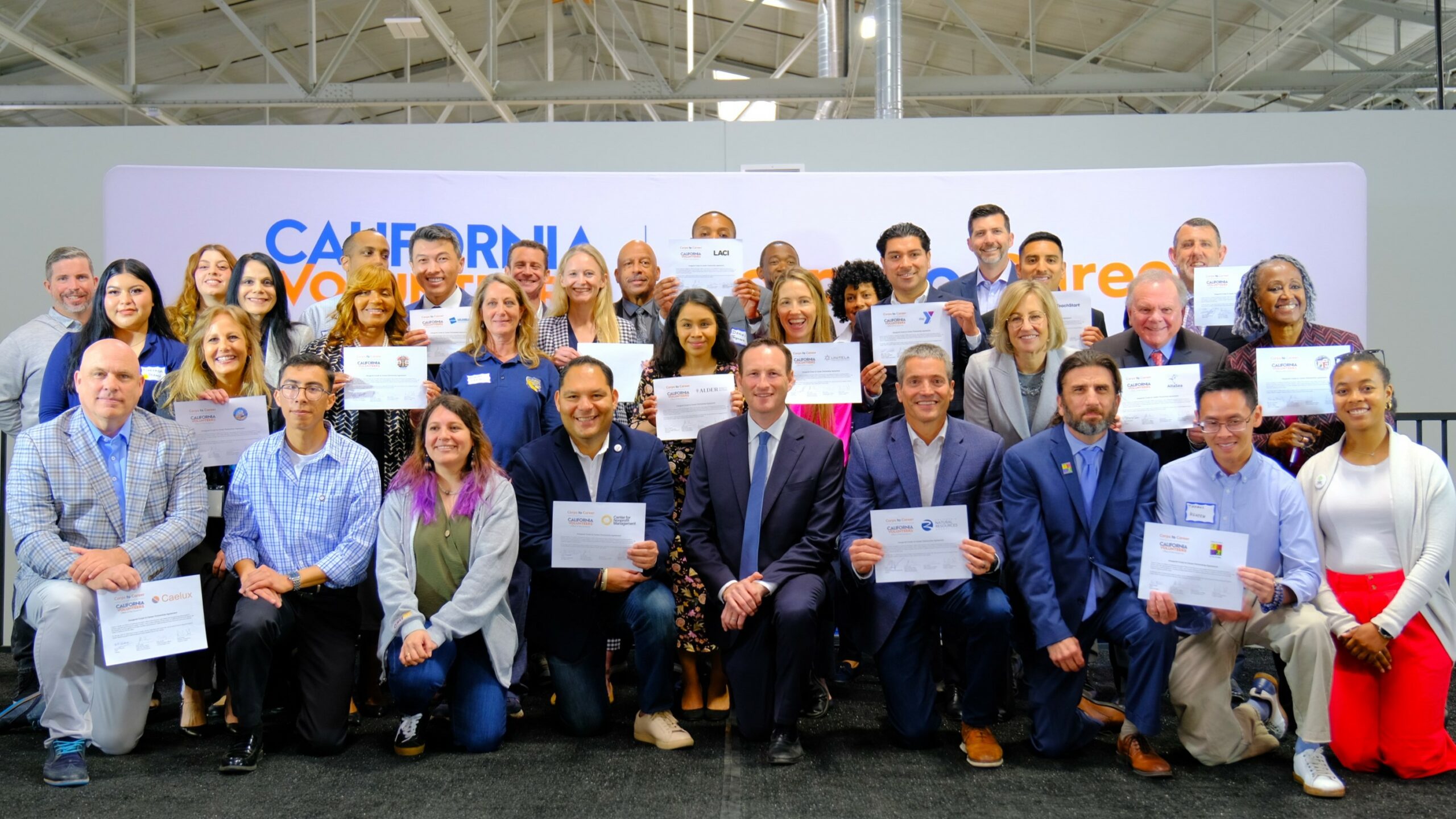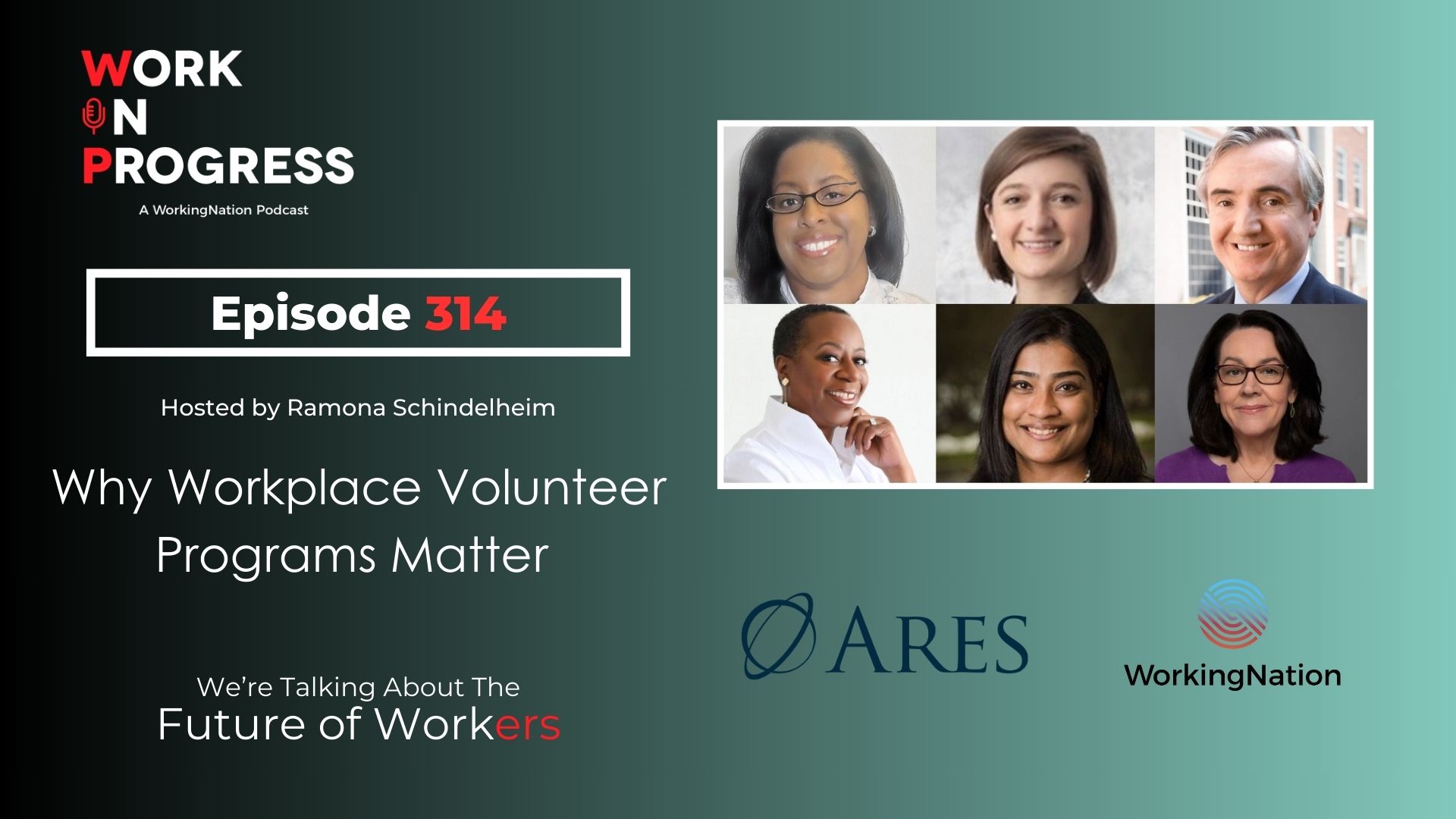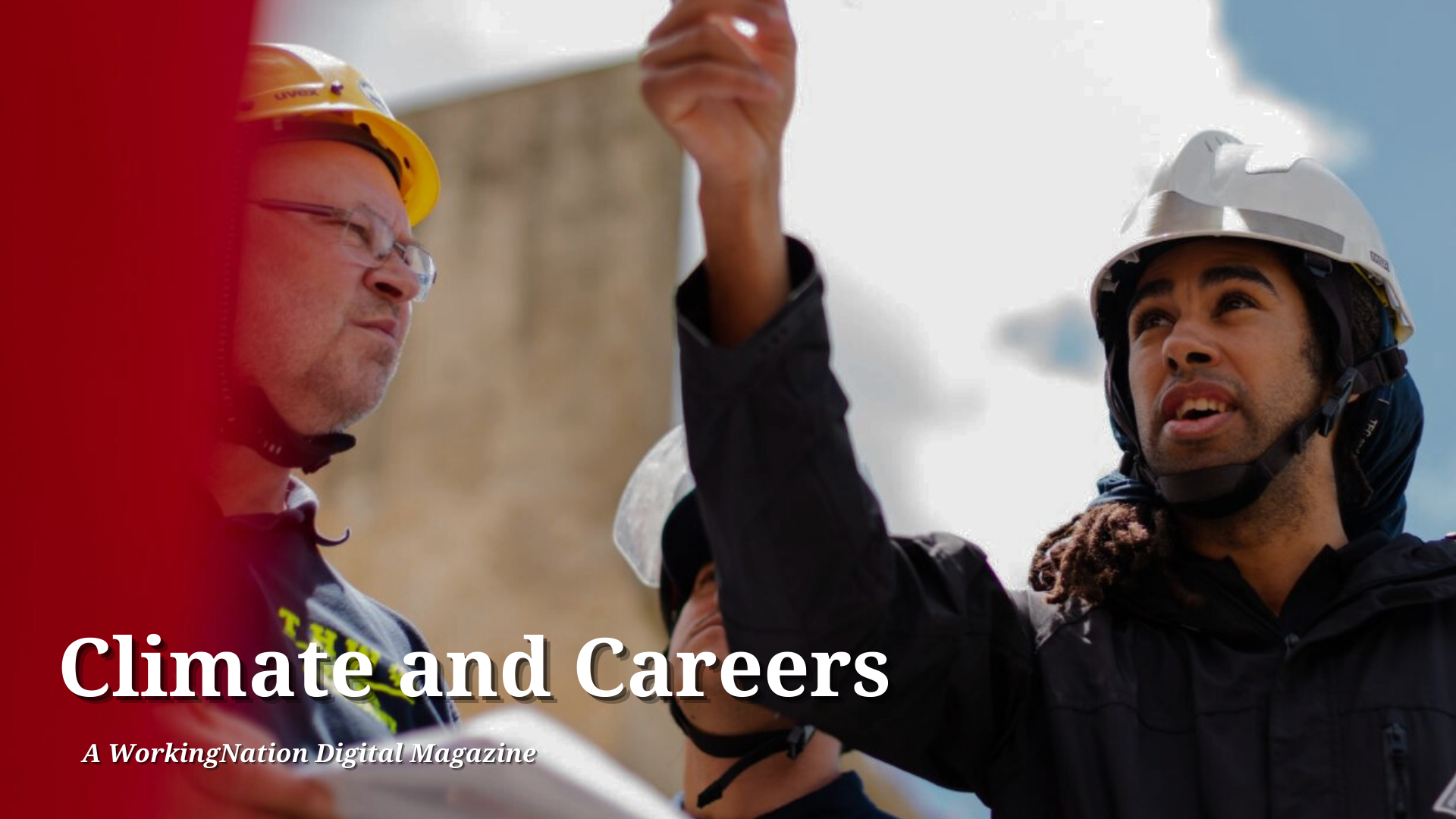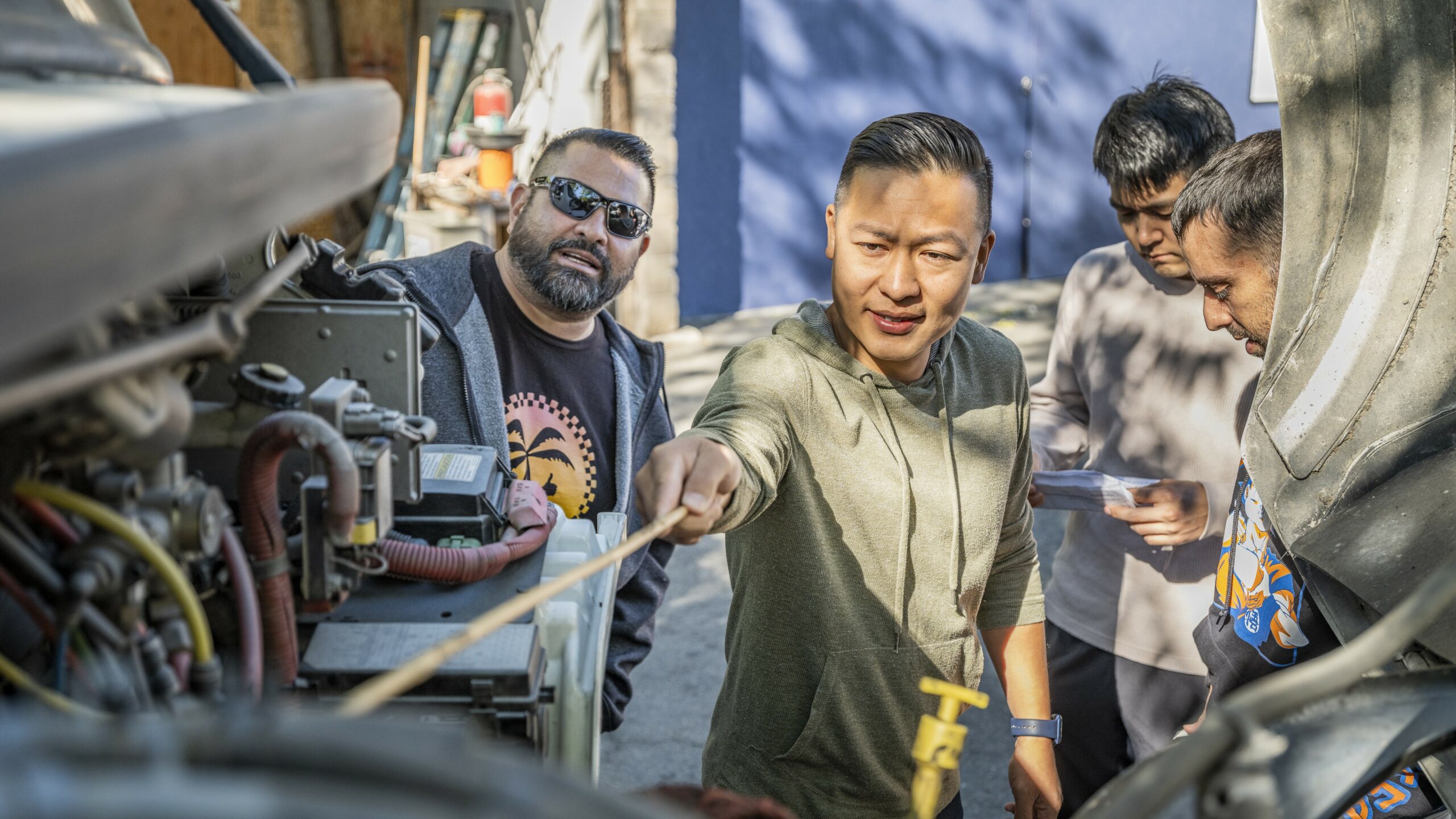We asked our WorkingNation Advisory Board to share their thoughts on the most important issues and challenges facing the workforce and the labor market in 2024.
Gerald Chertavian is the founder, former CEO, and now senior advisor to the nonprofit Year Up, a national program that empowers underserved young adults to enter the economic mainstream.
Here are his thoughts on The Future of Work 2024.

“I am passionate about the opportunity to include more people in economic mobility. We have two big problems in our world today – inequality and climate, two of the greatest challenges. The impacts of inequality are what threaten our democracy, what increase our depths of despair that we see. You think about why is democracy often threatened? One of the reasons is the level of inequality in people’s inability to gain access to economic mobility.
“So, I’m passionate about how do we, writ large, as a society increase mobility, allowing people a chance to take care of themselves and their families. I believe that one of the most important parts of preserving our democracy is getting that right. It is not an easy fix.
“I’m heartened to see many companies realizing that they can’t just keep fishing in the same pond for the same talent and believe they’re going to build the best workforces.
“Companies thinking about a skills-first approach to hiring, companies creating environments where everyone feels like they’re included and they belong – I see more of that happening in the last few years than I’ve seen in the prior 20 years that I had the opportunity to lead Year Up.
People’s inability to gain access to economic mobility is a major problem we have to solve worldwide
No Description
“I think what still has to be done to connect the skills that people have with the skills employers want is really twofold. How do we help employers better assess and understand the skills that people actually do have right now in the market, especially in the lower ends of the market in terms of pay? There is so much noise and so little signal.
“When you’re trying to hire someone, how do you truly understand and assess what skills and competencies they do have? How do I (as an employer) authentically assess that so that I don’t have to lean on something like a degree, which is a proxy for skills? What are the tools and methods we can use to better assist companies to assess what are those skills that someone has?
“And then obviously an individual needs to know, how do I best represent my skills? How do I best put that forward such that more companies can seek to acquire those, seek to engage with me? Right now, there is a translation problem, right? I say I have ‘skill x’, how do you assess whether I have ‘skill x’?
“Once we start to solve that, it unlocks a tremendous amount of economic activity and ability for supply and demand to clear in the labor market.”
Read more from our WorkingNation Advisory Board members on The Future of Work 2024.

